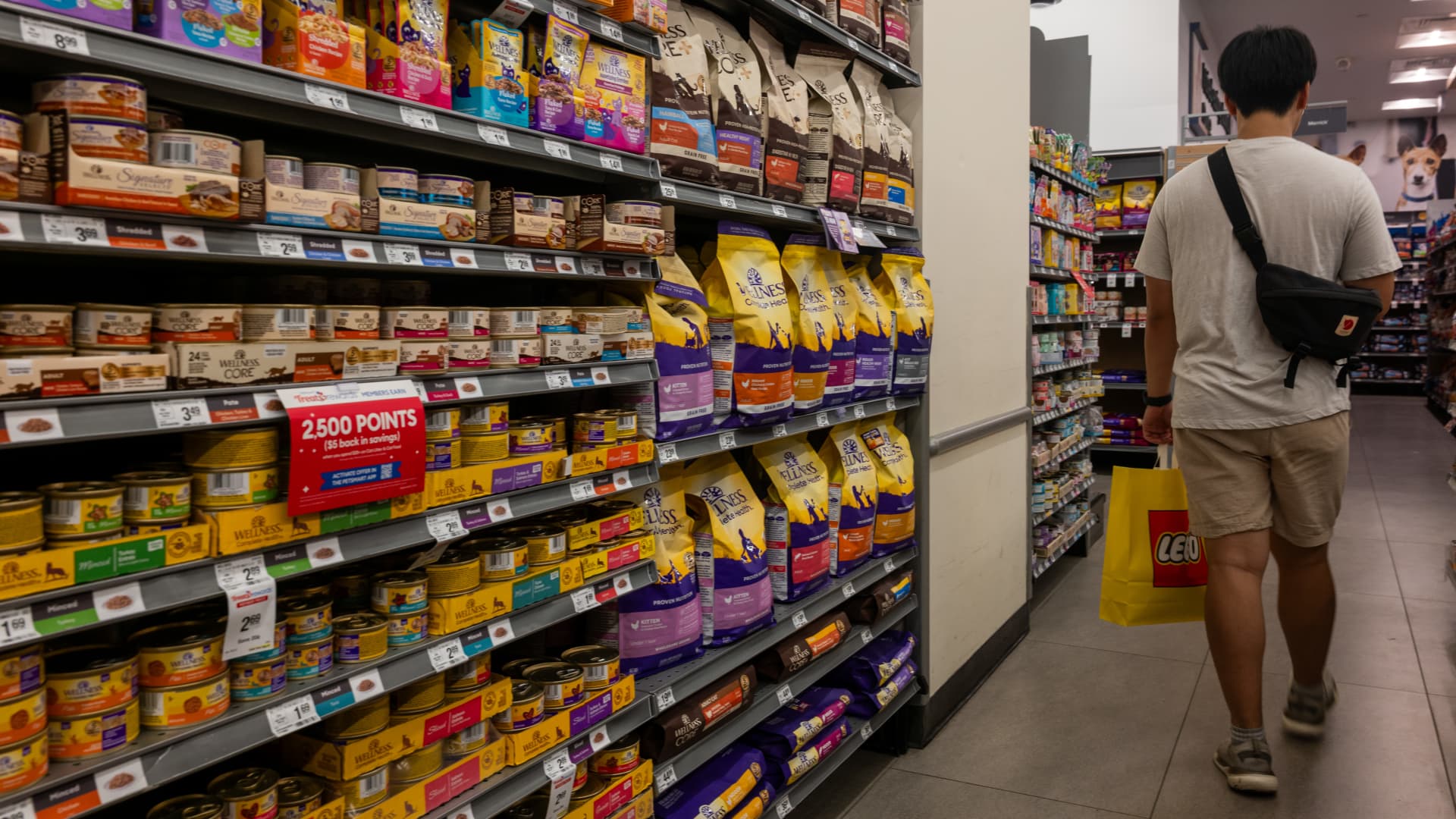An Aldi grocery store on May 2, 2025, in Washington, DC, U.S.
Kevin Dietsch | Getty Images News | Getty Images
Waiting for tariff-induced price increases in the U.S. to show up can feel like watching an M. Night Shyamalan movie.
July's consumer price index came in mostly benign. The headline annual rate of 2.7% was lower than the Dow Jones estimate of 2.8%. That said, the core figure was 0.1 percentage points more than expected, and the highest since February, before U.S. President Donald Trump unleashed his tariffs in April.
"The tariffs are in the numbers, but they're certainly not jumping out hair on fire at this point," former White House economist Jared Bernstein, who served under Joe Biden, told CNBC.
Things appear idyllic so far, but you know something's going to shock you out of your seats eventually — are the figures accurate, except that the decimal point should be shifted to the right? — which makes monitoring U.S. inflation a tense (and exciting) experience.
Jan Hatzius, Goldman Sachs' chief economist, in a Sunday research note estimated that the big reveal (when the U.S. consumer admits, "I see higher prices") could happen by October.
But markets hit record highs as investors saw the mild inflation numbers as a sign that the Federal Reserve has room to cut rates three times this year — or that tariffs might not drive prices that much higher.
Maybe the original premise was wrong: As far as inflation goes, could we be in a happily-ever-after Disney flick, instead of a Shyamalan movie?
— CNBC's Jeff Cox and Kevin Breuninger contributed to this report
What you need to know today
U.S. prices in July rose less than expected. The consumer price index increased a seasonally adjusted 0.2% for the month, putting the annual figure at 2.7%. Economists polled by Dow Jones were expecting a 0.2% and 2.8% rise, respectively.
The S&P 500 and Nasdaq Composite close at new highs. On Tuesday, July's tame CPI report pushed the indexes up 1.13% and 1.39% respectively. The Dow Jones Industrial Average also rose, adding 1.1%. The Stoxx Europe 600 ticked up 0.21%.
Trump threatens Fed chair Powell with a 'major lawsuit.' In a post on Truth Social, the U.S. president said the potential proceedings would relate to Powell's management of the Fed's headquarters renovations.
Perplexity AI offers $34.5 billion to buy Google's browser. The bid for Chrome, which came unsolicited, is higher than Perplexity's $18 billion valuation in July, but the firm said investors have agreed to back the deal.
[PRO] Traders see three rate cuts this year. With Tuesday's cooler-than-forecast inflation report, the futures market is now expecting a cut in each of the Fed's meeting in September, October and December, according to the CME FedWatch tool.
And finally...
The Shell gas station logo is displayed on February 13, 2025 in Austin, Texas.
Brandon Bell | Getty Images News | Getty Images
More European companies are shunning high-stakes deals in favor of smaller M&As
Executives from industrial giants to consumer goods firms are deploying capital on strategic deals designed to snap up competitors and acquire technologies instead of staking their reputations on major deals that run the risk of never materializing.
It's a strategy that allows firms to pursue growth without the immense risks and regulatory headaches that have scuttled larger deals.
— Ganesh Rao



Leave a Comment